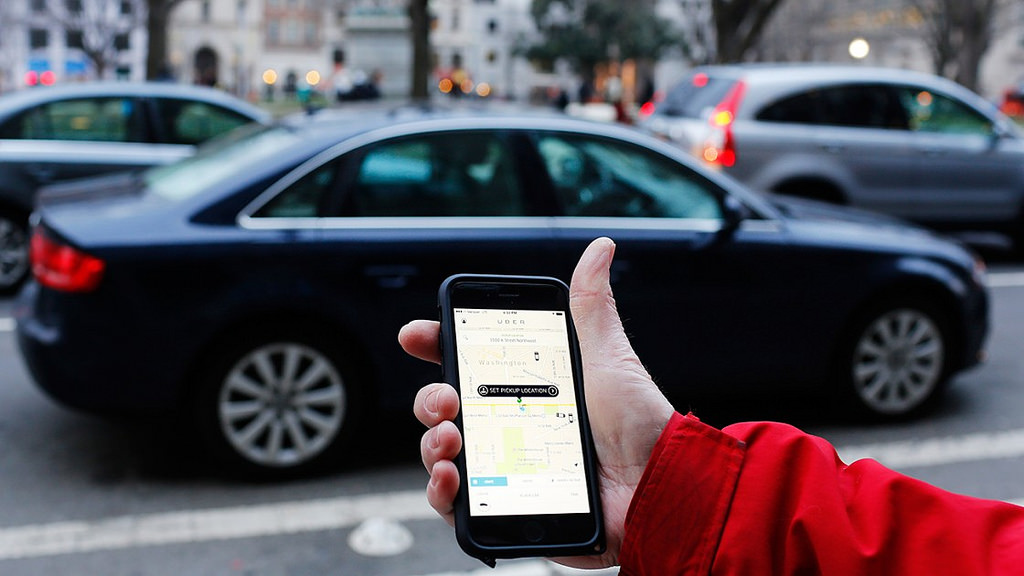Oh, Uber…where to begin? Do I love you or despise you? I have enjoyed your prompt black car and proletariat UberX services, but I have also received an ill-advised one mile ride on New Year's Eve for $150. Even then, it was a Mercedes, the driver had a cool accent, and you reduced the $150 to $80 after I griped.
Uber is a poster child for the (cringe) disruptive business model. It turned local transit upside-down, and it epitomizes a certain brand of anarcho-capitalism (AC). Why? Uber leverages technology to break the law, underpay workers, and price dynamically, all to provide an arguably amazing service. It dances delicately on the blade of a double-edged sword, rewarding the company and consumer while ignoring larger societal impacts. Backlash can be seen in the streets of more socialist leaning countries.
Employment of technology is central to both Uber and capitalism. Vast amounts of capital are used to create the system in which Uber can deploy human labor as efficiently as possible in real-time. The app’s algorithm employs purely capitalist pricing methods. It has no feelings. 10X pricing during a hurricane? “The app did it.” Underpayment of drivers? “The app did it.” Violation of local licensing laws? “The app did it and your government app was not smart enough to address the issue.” Technology is the enabler to deliver an outstanding service, as well as a scapegoat for all human-related issues.
Dynamic pricing is a methodology in which prices change according to user demand. This is like taking the two supply and demand curves in your economics class and moving them around to create a perfectly optimized price for Uber in real time. Bravo, Uber. You are brilliant, but who is bearing the cost? It’s got to be distributed somehow between the two human parties required for every Uber ride (driver and rider), and Uber as a company. Obviously, no for-profit company would program an algorithm to burden itself, so that leaves the driver and the rider. In the extremely competitive ridesharing space, companies compete fiercely based on price. Riders most often use the service that’s cheapest, so Uber can’t jack up prices every time there’s a spike in demand or a shortage of supply. Ergo, the model brilliantly optimizes Uber’s profits at the expense of their perfectly elastic driver supply. While riders continue to pay cheaper and cheaper fares.
Such pricing not only helps Uber by optimizing profits, but it also incentivizes drivers and users to adapt their habits around the company. If there is more business during the New Year, then naturally more drivers will sign up. If pricing is 4X due to some local event, then users may decide to walk. Both fundamental sides of the labor and consumer equation adapt along with the pricing. Of course, with any good capitalist argument, I must reinforce that this is all governed by choice. Uber is a luxury service and no one is forced to install and use the app--not the drivers nor the riders. Or were they?
Free will in any capitalist system may not be truly free will at all. Drivers’ opt-into the system, but if there is significant downward pressure on their wages otherwise due to ride sharing services, their “choice” to drive may just be economic coercion. Get another job or drive for Uber. Depending on the environment the consumer may not actually have much of a choice: As other drivers convert to using Uber, there will be fewer alternative options for transportation.
Capitalism is in constant friction with the government; it’s a love-hate relationship. Who build the roads? Not Uber. Yet the company has taken enormous profits without the expenses of taxi medallions and undoubtedly other government compliance measures. They have certainly pushed tax and labor laws to their extremes, all because they act with impunity. Enter anarcho-capitalism and Uber’s stupendous model. “Use technology to provide an awesome service without following any laws because we are smart.” Not bad.
Now I invite you to the streets of Italy, “va bene?” (this means okay in Italian). The ever-outspoken and hand-wielding Italians have taken to the streets to protest the impending Uber-vasion. Likely they are not fans of AC. But maybe they should be. The birthplace of Uber is the San Francisco, where the economy is booming! On the other hand, Italy has stagnated terribly with unemployment that runs deeply into the Gucci fabric of the society. Italians are infuriated with Uber, yet they need jobs. Although many taxi drivers will lose half their pay, maybe it is time to embrace some more capitalism to create jobs for others.
I think half of San Francisco drives for ride sharing services. Hey, I hear it’s “fun.” I am delighted to catch rides in under two minutes from and to almost anywhere, where a likely scary taxi ride would take twenty and cost twice as much. Furthermore, Uber is not the only player in town, with alternatives like Lyft. Uber has created a consumer revolution.
Driving is not that hard. That’s a fact. The natural supply side for drivers is massive and they require no training. Cars will someday be fully automated, so there is a natural progression of how technology will eliminate human inefficiency. Uber is just the first major player to take a huge crack at it. Just like pricing models, capitalism is dynamic and jobs change. While the company flirts with anarcho-capitalism by violating local laws, they epitomize a technological and capitalist revolution across every industry. Well, I’ve got to run. I just got a text, my Uber is here.






Leave A Comment